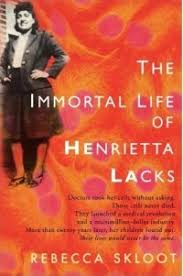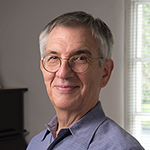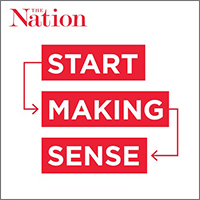 LISTEN ONLINE TO THIS SHOW – SUBSCRIBE TO PODCAST
LISTEN ONLINE TO THIS SHOW – SUBSCRIBE TO PODCAST
The legendary FATHER GREG BOYLE, Jesuit pastor of Dolores Mission in Boyle Heights starting in 1986, has made it his mission to help gang members who want to quit. He founded Homeboy Industries in 1988. Now he has written a wonderful book: Tattoos on the Heart: Stories of Hope and Compassion. Father Greg will be in conversation with Celeste Fremon in the LA Public Library ALOUD series Thursday May 13, 7pm.
Plus: Do you wanna dance? ALICE ECHOLS talks about disco: how it carved out a haven for gay men; how it thrust black women onto center stage; how “disco sucks” expressed the worst in America. Alice teaches American studies at Rutgers. Her new book is Hot Stuff: Disco and the Remaking of American Culture. Alice will be reading and signing at Book Soup Monday 5/17, 7pm. Playlist: Bee Gees, “Stayin Alive”; Barry White, “Can’t Get Enough”; Sylvester, “You Make Me Feel”; Donna Summer, “Bad Girls.”
 Also: Between Arabs and Israelis: Weeks before the Suez War of 1956, four-year-old KAI BIRD and his family moved to Jerusalem. He lived between Arabs and Israelis for much of his life — in Jerusalem, Saudi Arabia, Egypt, and Lebanon. Crossing Mandelbaum Gate is his personal history of growing up an American in the midst of three major wars in the Middle East. Kai is a contributing editor of The Nation; he won the 2006 Pulitzer Prize for his co-authored Robert Oppenheimer bio. He will be speaking in the LA Public Library ALOUD series Monday May 17, 7pm.
Also: Between Arabs and Israelis: Weeks before the Suez War of 1956, four-year-old KAI BIRD and his family moved to Jerusalem. He lived between Arabs and Israelis for much of his life — in Jerusalem, Saudi Arabia, Egypt, and Lebanon. Crossing Mandelbaum Gate is his personal history of growing up an American in the midst of three major wars in the Middle East. Kai is a contributing editor of The Nation; he won the 2006 Pulitzer Prize for his co-authored Robert Oppenheimer bio. He will be speaking in the LA Public Library ALOUD series Monday May 17, 7pm.
 LISTEN ONLINE TO THIS SHOW – SUBSCRIBE TO PODCAST
LISTEN ONLINE TO THIS SHOW – SUBSCRIBE TO PODCAST Also: Legalization of marijuana will be on the Nov. 2 ballot in California: for our fund drive premium today we are featuring The Marijuana Grower’s Handbook by ED ROSENTHAL, “the guru of ganja”: everything you need to know in a beautiful 500 page book.
Also: Legalization of marijuana will be on the Nov. 2 ballot in California: for our fund drive premium today we are featuring The Marijuana Grower’s Handbook by ED ROSENTHAL, “the guru of ganja”: everything you need to know in a beautiful 500 page book. It was a dirty job, but somebody had to do it: defend the new
It was a dirty job, but somebody had to do it: defend the new  Homeboy Industries
Homeboy Industries
 Also: Between Arabs and Israelis: Weeks before the Suez War of 1956, four-year-old
Also: Between Arabs and Israelis: Weeks before the Suez War of 1956, four-year-old Also:
Also:  Daniel Widener
Daniel Widener The Arizona legislature has passed a bill that will end ethnic studies classes in the state, according to the state’s top education official.
The Arizona legislature has passed a bill that will end ethnic studies classes in the state, according to the state’s top education official. Los Angeles’s Liberty Hill Foundation will honor Walter Mosley with its Upton Sinclair Award on May 20. Mosley, author of more than thirty books, is celebrated worldwide for his Easy Rawlins mysteries. Set in inner-city Los Angeles after World War II, they feature an out-of-work black war veteran who reluctantly becomes a private detective and confronts the city’s racism and corrupt police force. The best-known volume is probably Devil in a Blue Dress, which was made into a film in 1995 starring Denzel Washington as Mosley’s protagonist: “In a world divided by black and white, Easy Rawlins is about to cross the line.”
Los Angeles’s Liberty Hill Foundation will honor Walter Mosley with its Upton Sinclair Award on May 20. Mosley, author of more than thirty books, is celebrated worldwide for his Easy Rawlins mysteries. Set in inner-city Los Angeles after World War II, they feature an out-of-work black war veteran who reluctantly becomes a private detective and confronts the city’s racism and corrupt police force. The best-known volume is probably Devil in a Blue Dress, which was made into a film in 1995 starring Denzel Washington as Mosley’s protagonist: “In a world divided by black and white, Easy Rawlins is about to cross the line.” But the odds are still against real reform –And the problem isn’t just Republican opposition; there are also the Democrats.
But the odds are still against real reform –And the problem isn’t just Republican opposition; there are also the Democrats. Also:
Also: 
 Also: politics and photography – DOROTHEA LANGE took the photo called “Migrant Mother,” the iconic image of the Great Depression and the New Deal -0- and a lot of other photos the government censored.
Also: politics and photography – DOROTHEA LANGE took the photo called “Migrant Mother,” the iconic image of the Great Depression and the New Deal -0- and a lot of other photos the government censored.  Stephen Ambrose, the best-selling historian who wrote or edited more than a dozen books about Eisenhower as general and president, based his fame in large part on what he said were his interviews with Ike – but now, eight years after Ambrose’s death, an official at the Eisenhower Library in Abeline says the interviews never took place.
Stephen Ambrose, the best-selling historian who wrote or edited more than a dozen books about Eisenhower as general and president, based his fame in large part on what he said were his interviews with Ike – but now, eight years after Ambrose’s death, an official at the Eisenhower Library in Abeline says the interviews never took place.
